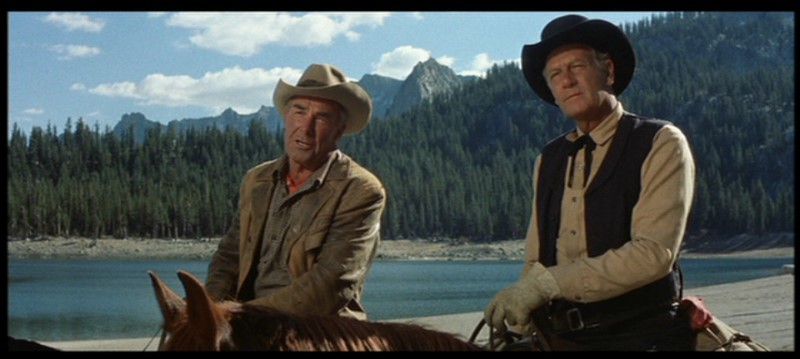Revisit: Ride the High Country

An MGM film 1962
Directed by Sam Peckinpah
Written by N.B. Stone Jr.
Ride the High Country is a eulogy for the traditional western. The film is conscious of the myth of the American Frontier, presenting it as dying legend that can, and has been, manipulated. Here is a version of the West where Eastern civilizing culture and ideals have pushed savage lands to the very corners of the Earth. However, that’s not to say that such savage ideals don’t exist. The film doesn’t exactly regret the loss of traditional Western values, but rather appears to celebrate moral ambiguity in the genre, desiring to push that trend even further.
The film provides three male heroes: Steve Judd, moral and upright, the Gary Cooper template for the classical Western hero; Gil Westrum, a good but morally gray man, the John Wayne type; and Heck Longtree, a youngin’, the next generation of cowboy. While Judd is presented as upstanding, his character is constantly referred to as old and out of date; even from the beginning, when he mysteriously rides into town in the most classical fashion, it is made clear that this character’s function in the genre is no longer effective. In the end, he is the only one killed off. Westrum, seemingly corrupt and villainous at times, is redeemed, rewarded in the end for his ability as a character to make sacrifice and overcome immoral temptation. Likewise, Longtree grapples with morality, ultimately establishing an honor code from both Judd and Westrum.
Peckinpah finds good humor in the banter between the two dying breeds of hero, but the real excitement in the film comes through the villains. These men are equally morally blurred, as they exhibit knowledge of moral codes, but choose to ignore them, instead settling for insincere symbolic measures that clean the appearance of their evil ways. The Hammond Gang represents tiers of damaged psychology, from sharp and sly to straight crazy, and they incite all of the riotous action in the film. While Ride the High Country is aware that it is declaring the end of one classical mode, it appears to be celebrating a newfound interest in damaged characters, and ambiguity in savagery.

No comments:
Post a Comment